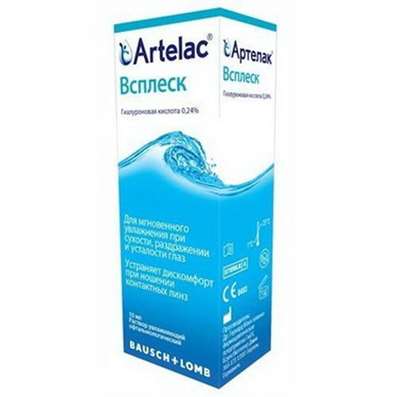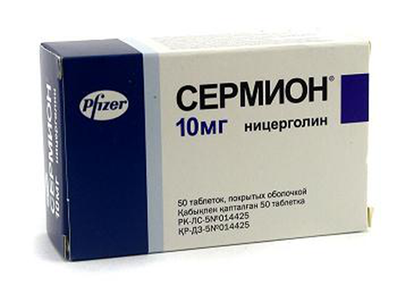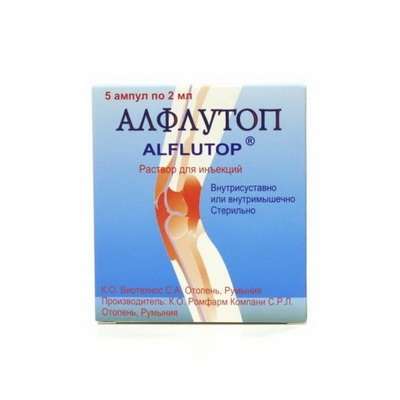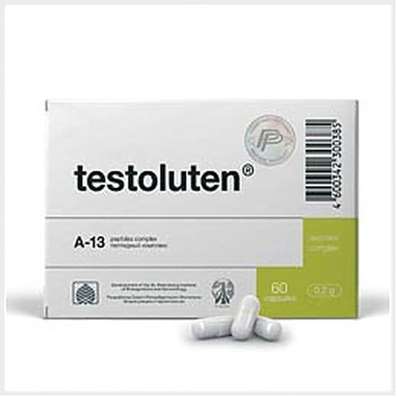Instruction for use: Bralangine
I want this, give me price
Active substance Metamizole sodium + Pitofenone + Fenpiverinium bromide
ATX Code N02BB52 Metamizole sodium in combination with other drugs, except for psycholeptics
Pharmacological groups
NSAIDs - Pyrazolones in combinations
K80.5 stones of bile duct without cholangitis or cholecystitis
Obstruction of common bile duct, Stones of the common bile duct, biliary colic, Colic liver, Hepatic colic, Cholesterol gallstones in the common bile duct
M54.3 Sciatica
Ishialgia, Neuralgia of the sciatic nerve, Sciatic neuritis
M79.1 Myalgia
Myofascial pain syndromes ,Pain syndrome in musculo-articular diseases, Pain syndrome in chronic inflammatory diseases of the musculoskeletal system, Pain in the muscles, Tenderness of muscles, Muscular soreness in severe physical exertion, Painful conditions of the musculoskeletal system, Pain in the musculoskeletal system, Pain in the muscles, Pain at rest, Muscle aches, Muscle pain, Musculoskeletal pain, Myalgia, Muscle pain, Muscle pain at rest, Muscle pain, Muscular pain of non-rheumatic origin, Muscle pain of rheumatic origin, Acute muscle pain, Rheumatic pain, Rheumatic pains, Myofascial syndrome, Fibromyalgia
M79.2 Neurology and neuritis, unspecified
Pain syndrome with neuralgia, Brachialgia, Occipital and intercostal neuralgia, Neuralgia, Neuralgic pain, Neuralgia, Neuralgia of intercostal nerves,Neuralgia of the posterior tibial nerve, Neuritis, Neuritis traumatic, Neuritis, Neurological Pain Syndromes, Neurological contractures with spasms, Acute neuritis, Peripheral neuritis,Post-traumatic neuralgia,Severe pain of a neurogenic nature, Chronic neuritis, Essential neuralgia
N23 Renal colic unspecified
Pain in renal colic, Pain smooth muscle spasm, Pain spasm of smooth muscles (renal and biliary colic, intestinal spasms, dysmenorrhea), Pain spasm of smooth muscles of internal organs, Pain spasm of smooth muscles of internal organs (kidney and biliary colic, intestinal spasms, dysmenorrhea), renal Colic, ureteral colic, Renal colic, Renal colic with urolithiasis, Kidney disease, Spasm of smooth muscle in diseases of the urinary system, The spasm of the urinary tract, The spasm of the ureter, The spasm of the ureters, Spasms of the urinary tract, Spasms of the urinary tract
N94.6 Dysmenorrhea Unspecified
Pain during menstruation, Functional disorders of the menstrual cycle, Menstrual cramps, Emmeniopathy, Pain during menstruation, Painful menstrual irregularities, algomenorrhea, algomenoreya, Pain smooth muscle spasm, Pain spasm of smooth muscles (renal and biliary colic, intestinal spasms, dysmenorrhea), Pain spasm of smooth muscles of internal organs (kidney and biliary colic, intestinal spasms, dysmenorrhea), Disalgomenoreya, dysmenorrhea, Dysmenorrhea (essential) (Exfoliative), menstrual disorder, menstruation painful, metrorrhagia, Violation of the menstrual cycle, Menstrual irregularities, Prolaktinzavisimoe menstrual disorders, Prolaktinzavisimoe menstrual dysfunction, Pain spasm of smooth muscles of internal organs, Spasmodic dysmenorrhea, Primary disalgomenoreya
R10.4 Other and unspecified abdominal pain
Abdominal pain, Gastrointestinal spasm, intestinal colic, Colic in infants, The feeling of fullness, Resi abdominal, Spasm of smooth muscle in diseases of the digestive tract, The spasm of the biliary tract, Biliary tract spasm, enterospasm, Spasm of the digestive tract, Spasms of the digestive tract smooth muscle, stomach Cramps, gastrointestinal spasms, Spastic condition of the gastrointestinal tract, intestinal tenesmus, Feeling of fullness, Baby colic
R25.2 Cramp and spasm
Muscle spasms in tetanus, Pain smooth muscle spasm, Pain spasm of smooth muscles (renal and biliary colic, intestinal spasms, dysmenorrhea),Pain spasm of smooth muscles of internal organs, Pain spasm of smooth muscles of internal organs (kidney and biliary colic, intestinal spasms, dysmenorrhea), Painful muscle spasm, mimic spasm, spasticity, Muscle spasms, Muscle spasms of central origin, Muscle spasms, Neurological contracture with spasms, Night cramps in the extremities, Night leg cramps, Symptomatic convulsive state, West syndrome, Smooth muscle spasm, Spasm of vascular smooth muscle, muscle spasm, The spasm of the striated muscles due to organic diseases of the CNS, Skeletal muscle spasm, The spasms of smooth muscles of internal organs, The spasms of skeletal muscles, Spastic condition of striated muscle, Spastic pain, Spasmodic state of smooth muscle, Spasticity skeletal muscle, muscle cramps, convulsions, Leg cramps, Seizures of central origin, convulsive states, Spastic syndrome, Convulsive status in children, Tonic seizures, Cerebral spastic syndrome, Phenomenon jackknife
R30 Pain associated with urination
R52.9 Unspecified Pain
Pain after cholecystectomy, Pain shooting, Non-malignant pain, Obstetric and gynecological pain, Pain syndrome, Pain in the postoperative period, Pain in the postoperative period after orthopedic surgery, Pain of inflammatory genesis, Pain than cancer genesis, Pain syndrome after diagnostic procedures, Pain after surgery Diagnostic, Pain after surgery, Pain after orthopedic surgery, Pain after injuries, Pain after the removal of hemorrhoids, Pain at the non-rheumatic inflammation of nature, Pain in inflammatory lesions of the peripheral nervous system, Pain in diabetic neuropathy, Pain in acute inflammatory diseases of the musculoskeletal system, Pain when the tendon pathology, Pain smooth muscle spasm, Pain spasm of smooth muscles (renal and biliary colic, intestinal spasms, dysmenorrhea), Pain spasm of smooth muscles of internal organs, Pain spasm of smooth muscles of internal organs (kidney and biliary colic, intestinal spasms, dysmenorrhea), Pain in trauma syndrome, Pain with injuries and after surgical interventions, Pain in chronic inflammatory diseases of the musculoskeletal system, Pain with duodenal ulcer, Pain syndrome in gastric ulcer, Pain syndrome in gastric ulcer and duodenal ulcer, pain, Pain during menstruation, pain syndromes, painful condition, Painful foot fatigue, Sore gums when wearing dentures, Soreness of the cranial nerves exit points, Painful menstrual irregularities, Painful dressings, Painful muscle spasm, Painful teeth growth, Melosalgia, Pain in the area of the surgical wound, Pain in the postoperative period, Pain in the body, Pain after diagnostic procedures, Pain after orthopedic surgery, Pain after surgery, The pains of the flu, Pain in diabetic polyneuropathy, Pain for burns, Pain during sexual intercourse, Pain during diagnostic procedures, Pain during therapeutic procedures, for colds Pain, Pain in sinusitis, Pain in trauma, Pain traumatic, The pain in the postoperative period, Pain after diagnostic procedures, The pain after sclerotherapy, Pain after surgery, postoperative Pain, Pain postoperative and posttraumatic, posttraumatic pain, Pain when swallowing, Pain in infectious and inflammatory diseases of the upper respiratory tract, The pain of burns, The pain in traumatic muscle injury, Pain in trauma, The pain of tooth extraction, The pain of traumatic origin, Pain caused by spasm of smooth muscles, Expressed pain syndrome, Expressed pain syndrome, traumatic origin, Postoperative pain, Post-traumatic pain, Post-traumatic pain syndrome, Torpid pain, Traumatic pain, Traumatic pain, Mild pain, Moderately severe pain, Moderate pain, Polyarthralgia with polymyositis
Composition and form of release
1 tablet contains metamizole sodium (or Analgin) 0.5 g, pituopenone hydrochloride 0.005 g and fenpiverinium bromide 0.0001 g; in a contour acheikova packing 10 pcs., in a cardboard bundle 1, 2 or 10 packings.
1 ampoule with 5 ml solution for injection - metamizole sodium (or Analgin) 0.5 g, pituopenone hydrochloride 0.002 g and fenpiverinium bromide 0.00002 g; in the contour acheikova package 5 ampoules, in a cardboard bundle 1 package.
pharmachologic effect
Pharmacological action - antipyretic, analgesic, spasmolytic.
It blocks cyclooxygenase, reduces biosynthesis of PG, exerts direct myotropic and holinolytic action, causes relaxation of smooth muscles.
Pharmacokinetics
Passes through the placental barrier and penetrates into breast milk. It is excreted from the body by the kidneys.
Indications
Pain syndrome with spasms of smooth muscles of internal organs (renal and biliary colic, intestinal spasm, dysmenorrhea, etc.); pain in the joints, neuralgia, ischialgia, myalgia (short-term symptomatic treatment); pain after surgical and diagnostic interventions (auxiliaries); elevated temperature for colds and infectious and inflammatory diseases.
Contraindications
Hypersensitivity, tachyarrhythmia, expressed violations of the liver and kidneys, bronchial asthma, diseases of the blood system, collapsoid states, congenital deficiency of glucose-6-phosphate dehydrogenase, angle-closure glaucoma, mechanical stenosis of the gastrointestinal tract, megacolon, prostatic hypertrophy with a tendency to accumulate residual urine, 3 months or a child's body weight less than 5 kg, pregnancy (I trimester and the last 6 weeks), breast-feeding.
pregnancy and lactation
Contraindicated in the first trimester and in the last 6 weeks of pregnancy, in the remaining periods only under strict indications and under the supervision of a doctor. For the duration of treatment, breastfeeding should be discontinued.
Side effects
From the cardiovascular system and blood (hematopoiesis, hemostasis): a sharp decrease in blood pressure, agranulocytosis, leukopenia, thrombocytopenia.
From the genitourinary system: oliguria, anuria, proteinuria.
From the skin: Stevens-Johnson syndrome, Lyell's syndrome.
Allergic reactions: urticaria, conjunctival lesions, nasopharyngeal mucosa, anaphylactic and anaphylactoid reactions.
Other: soreness in the injection site.
In therapeutic doses, the drug is usually well tolerated.
Interaction
Simultaneous use with other non-narcotic analgesics can lead to mutual enhancement of toxic effects. Tricyclic antidepressants, oral contraceptives, allopurinol increase the toxicity of the drug. Barbiturates, phenylbutazone and other inducers of microsomal liver enzymes weaken the action of metamizole. Simultaneous use with cyclosporine lowers the level of the latter in the blood. Sedatives and tranquilizers increase the analgesic effect of Braalangin.
Dosing and Administration
Inside, single and daily doses are respectively: adults and adolescents over 15 years - 1 and 8 tables. (2 tablets 4 times a day), children 12-14 years old (body weight not less than 50 kg) - 1 and 6 tablets. (1.5 tablets 4 times a day), children 8-11 years old (body weight about 33 kg) - 0.5 and 4 tablets. (1 table 4 times a day), children 5-7 years (body weight about 24 kg) - 0.5 and 2 tablets. (0.5 tablets 4 times a day).
In / in, / m. Single and maximum daily dose are correspondingly: adults and adolescents older than 15 years - 2-5 ml and 10 ml (5 ml 2 times a day), iv injection of a single dose of more than 2 ml is possible only after a careful specification of the indications. For children and infants, the daily dose is set taking into account the body weight: children 12-15 years (body weight 46-53 kg) - in / in and / m 0.8-1 ml, children 8-12 years (body weight 31 -45 kg) - in / in 0,5-0,6 ml and in / m 0,6-0,7 ml, children 5-7 years (body weight 24-30 kg) - in / in 0,3- 0,4 ml and in / m 0,4-0,5 ml, children 3-4 years (body weight 16-23 kg) - in / in 0,2-0,3 ml and in / m 0,3 - 0,4 ml, children 1-2 years (body weight 9-15 kg) - in / in 0,1-0,2 ml and in / m 0,2-0,3 ml, children 3-11 months (weight body 5-8 kg) - only in / m 0,1-0,2 ml. In / in the introduction is carried out slowly (1 ml for at least 1 min), in the position of the patient lying down and under the control of blood pressure, heart rate and respiratory rate. The injection solution must have a body temperature. The solution is incompatible in one syringe with any other medicines.
storage Conditions
In a dry, the dark place at a temperature of no higher than 25 ° C.
Keep out of the reach of children.
Shelf life
3 years.
Do not use after the expiry date printed on the package.

 Cart
Cart





